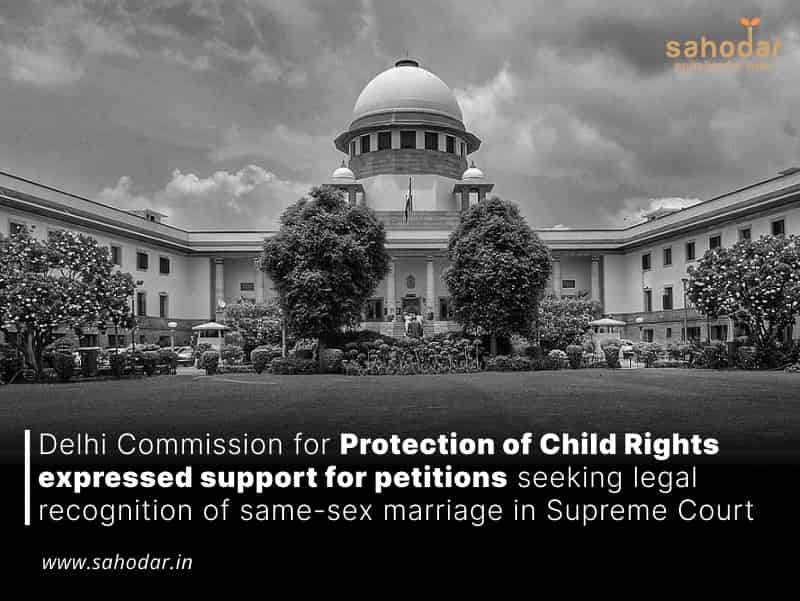An intervention application has been filed by the Delhi Commission for Protection of Child Rights (DCPCR) in the petitions related to legal recognition of same-sex marriage in India. These petitions are scheduled to be heard before a Constitution bench of the Supreme Court on April 18, 2023. The application highlights that DCPCR, being a statutory body under the Commission for Protection of Child Rights Act, 2005, has extensive experience of 15 years in addressing child rights issues and can provide assistance to the Supreme Court in understanding the impact of same-sex marriages on children.
The intervention application in support of same-sex marriage and adoption addresses several concerns. Firstly, it disputes the psychological impact on children being raised in households of same-sex parents. The application argues that multiple studies have demonstrated that same-sex couples can be as good or poor at parenting as heterosexual parents. The application cites various countries that have legalized same-sex marriages and highlights that over 50 countries presently permit same-sex couples to legally adopt children, without any differences in parenting abilities when compared to heterosexual parents.
According to the application, the use of gendered language in legislations does not pose a serious concern for the rights of same-sex couples. The application argues that Indian legislation has enacted several safeguards to tackle social vices that disadvantage women due to the patriarchal setup of society. Examples cited include the Domestic Violence Act, 2005, Dowry Prohibition Act, 1961, as well as certain provisions of the Hindu Marriage Act, 1956, the Special Marriage Act, 1954, and the Indian Divorce Act, 1869, which grant special grounds for divorce exclusively to women.
The application suggests that a gender-neutral approach could be necessary for matters such as domestic violence, maintenance, and custody, in the context of same-sex marriages. It argues that since there may not necessarily be a dominant or vulnerable sex in such marriages, the laws should not discriminate on the basis of gender. The application also states that this should not be a cause for concern, as it is in fact a positive development that power dynamics between spouses are less likely to be skewed towards one gender.
The DCPCR’s application emphasizes the significance of recognizing same-sex marriages in creating a non-discriminatory environment for children to grow up in. It argues that the lack of basic legal rights for individuals with homosexual orientations can result in adverse psychological effects and mental health issues, particularly for adolescents with such orientations. Without equal rights for homosexuals, their acceptance and legitimacy will be challenged, which can also impact adolescents. The application cites jurisprudence from other constitutional courts and suggests potential guidelines that the Supreme Court could consider issuing.
The DCPCR has suggested a set of guidelines that it believes should be implemented by the central and state governments, as well as educational institutions and relevant authorities. These guidelines include raising public awareness about the normalcy of same-sex family units and the importance of treating them equally, ensuring that schools eliminate any homophobic content from textbooks, promoting a more diverse understanding of family that includes homosexual couples as examples, setting up dedicated helplines for children facing stigma or bullying due to belonging to a same-sex family unit, and providing counseling and psychological assistance to children suffering from such victimization.
Source: https://www.livelaw.in/top-stories/dcpcr-supports-marriage-equality-petitions-in-supreme-court-says-govt-should-create-awareness-that-same-sex-marriages-are-normal-225709

